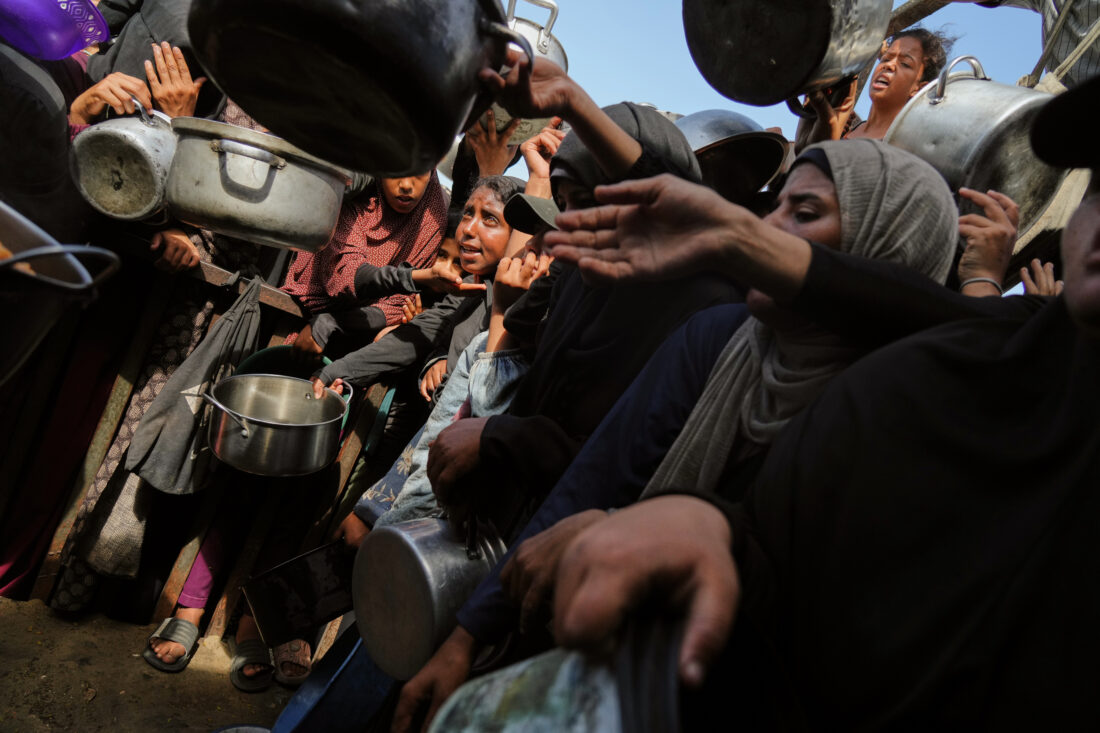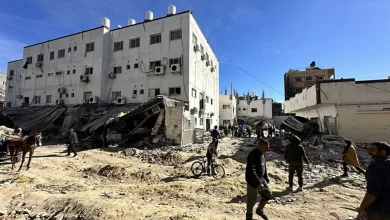Israel and Hamas Move Toward Ceasefire Talks in Egypt as Trump Pushes for Hostage Deal
Negotiators from both sides arrived in Sharm el-Sheikh amid cautious optimism that a truce could finally be within reach. The U.S.-brokered plan envisions a full hostage release and Hamas disarmament within days.

Hopes for a ceasefire in Gaza rose on Monday as Israeli and Hamas delegations prepared for indirect negotiations in Egypt. The talks — the first in weeks — come after Prime Minister Benjamin Netanyahu suggested that a long-awaited hostage deal could be announced “within days.”
The renewed diplomatic push coincides with the second anniversary of the Hamas assault that ignited the war, a milestone marked by grief and deep uncertainty across the region.
Delegations gather in Sharm el-Sheikh
Netanyahu’s office confirmed that a team led by senior negotiator Ron Dermer would travel to Egypt for the discussions. An Egyptian official, speaking anonymously, said the Hamas delegation had already arrived, while U.S. envoy Steve Witkoff would join the talks.
Cairo’s foreign ministry said the agenda centers on an exchange of Israeli hostages for Palestinian prisoners. “These are critical hours,” a regional diplomat said, describing the mood as “cautiously hopeful.”
Trump and Rubio press for swift agreement
President Donald Trump hailed Hamas’s partial acceptance of the U.S. peace framework, which calls for the release of the remaining 48 hostages — around 20 believed to be alive — within three days. Under the plan, Hamas would relinquish control of Gaza and disarm, paving the way for a new governing structure.
“This is the closest we’ve come to getting all of the hostages released,” U.S. Secretary of State Marco Rubio said on ABC’s This Week. He outlined a two-phase process: hostages freed first, followed by an Israeli withdrawal to the so-called “yellow line” — positions held before the latest escalation.
Speaking separately to CBS, Rubio urged both sides to halt bombardments to allow the releases to proceed safely.
Trump signals pressure and possible guarantees
In text messages to CNN’s Jake Tapper, Trump said there would be “complete obliteration” if Hamas attempted to remain in power. He added that Netanyahu supported both “ending the bombing” and “peace in Gaza — soon on the rest.”
Israeli government spokesperson Shosh Badrosian told reporters that Netanyahu and Trump are in “regular contact” and that the prime minister expects the Egypt talks “to last only a few days.” Foreign Minister Gideon Sa’ar said Israel is “closer than ever to a hostage deal since the January ceasefire.”
Families and protests intensify pressure
Outside Netanyahu’s Jerusalem residence, relatives of the remaining hostages held vigils and pleaded for a breakthrough. “We cannot allow such a historic agreement to be sacrificed again,” said Michel Ilouz, whose son Guy remains missing.
Meanwhile, massive pro-Palestinian demonstrations swept through European capitals over the weekend. The foreign ministers of eight Muslim-majority nations released a joint statement welcoming progress toward a ceasefire and urging a unified Palestinian Authority presence in both Gaza and the West Bank.
Fighting and humanitarian toll persist
Despite Trump’s public order for Israel to halt airstrikes, residents and medical workers reported ongoing bombardments across Gaza on Sunday. The military confirmed it had paused “certain operations,” but Israel’s Chief of Staff Lt. Gen. Eyal Zamir warned that “if diplomacy fails, we will resume fighting.”
Shifa Hospital in Gaza City said eight people were killed in multiple strikes, while four others died near an aid distribution site in Rafah. Israel’s military denied involvement in the latter incident.
Doctors Without Borders confirmed that two of its staff were killed in recent attacks, including Abed El Hameed Qaradaya, who died after being wounded last week.
Gaza’s Health Ministry said the overall death toll had climbed to 67,139, with nearly 170,000 injured — about half of them women and children. Although the ministry is run by Hamas, the U.N. continues to treat its casualty data as the most credible in the absence of independent verification.
An uncertain path forward
Israel’s army continues to warn civilians against returning to northern Gaza, saying Hamas infrastructure remains active. For many trapped in makeshift shelters, the promise of peace feels remote.
“We’re on the brink,” said Mahmoud Hashem, a father living in a tent in Gaza City. “We don’t know if we’ll die from another strike or from hunger.”


